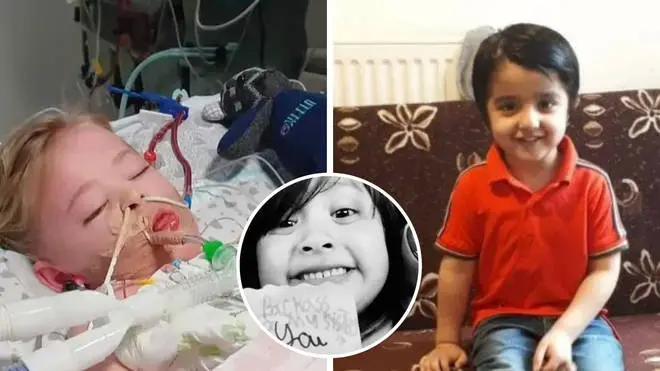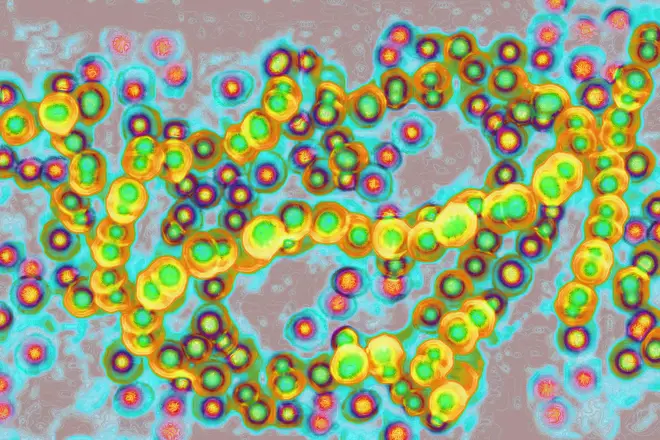
Iain Dale 7pm - 10pm
5 December 2022, 18:52 | Updated: 5 December 2022, 23:46

The number of children who have died in the Strep A outbreak has reached eight, after a pupil at Morelands Primary School in Waterlooville, Hampshire, became the latest victim.
As with the other seven deaths, the child died after contracting an invasive Group A Streptococcal (iGAS) infection, a serious form of the disease, which is usually harmless.
The UK Health Security Agency said it was important that "accurate information is shared with the school community" in Hampshire.
Simon Bryant, director of public health at Hampshire County Council, said it was "working closely with the school to raise awareness amongst parents and carers of the signs and symptoms of Group A Streptococcal infections".
He added: "I would stress that contracting (this) disease from another person is very rare.
"Most people who come into contact with Group A Streptococcal infections remain well and symptom-free - and therefore there is no reason for children to be kept home if well."
Read more: Labour to scrap 'indefensible' House of Lords in first term under new plans to shake up constitution
It comes after a 12-year-old boy who was attending a London school became the seventh to die after contracting the bug.
The child - who was not named - was a Year 8 student at private Colfe’s School in Lewisham, south east London, and is the first secondary school pupil to lose their life in the current outbreak.
GPs have been told to have a 'low threshold' for prescribing antibiotics in possible Strep A infections in children.
Strep A infections are caused by Group A Streptococcus bacteria and usually result in mild illness, especially when antibiotics are prescribed early on the in disease.
However, there is concern among health officials about an unusual rise in serious Strep A infections, called iGAS infections when it moves deeper into the body and which can result in life-threatening problems including sepsis.
So far this year there have been 2.3 cases of iGAS per 100,000 children between the ages of one and four — this is over four times the average of 0.5 seen each season prior to the pandemic.

Regional data shows that cases are at their highest in the Yorkshire and the Humber which has 1.4 cases per 100,000 people.
In Hampshire, in the South East, there is 1 case per 100,000 people.
Today, Downing Street urged parents to be vigilant for any signs of the infection, which is usually mild.
The government stressed that the NHS is 'well prepared' for situations such as these.
The first symptoms an infection, such as a fever and sore throat, can be mistaken for common winter viruses which aren't responsive to antibiotics.
Other symptoms can include muscle aches and vomiting, and Strep A can also cause scarlet fever.
Dr Liz Whittaker, an expert in paediatric infectious diseases and immunology at Imperial College London, said GAS infection are "very common".
"What we worry about is when it becomes invasive and severe," she explained.
Dr Whittaker told the BBC that said parents of primary school children "should not worry, but they should know when to seek medical attention - if a child's temperature is not settling after four or five days or they're breathing fast or lethargic or not drinking properly, then get advice from 111 online or by phone."
In a statement, Dr Colin Brown, Deputy Director of UKHSA, said: "We are seeing a higher number of cases of Group A strep this year than usual. The bacteria usually causes a mild infection producing sore throats or scarlet fever that can be easily treated with antibiotics.
"In very rare circumstances, this bacteria can get into the bloodstream and cause serious illness – called invasive Group A strep (iGAS). This is still uncommon; however, it is important that parents are on the lookout for symptoms and see a doctor as quickly as possible so that their child can be treated and we can stop the infection becoming serious.
"Make sure you talk to a health professional if your child is showing signs of deteriorating after a bout of scarlet fever, a sore throat, or a respiratory infection."